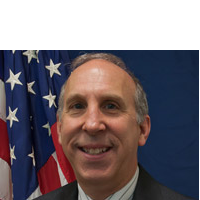U.S. Ambassador to Moldova: Who Is James Pettit?

On July 15, 2014, the Senate Foreign Relations committee heard testimony from James D. Pettit, whom President Barack Obama had nominated as U.S. ambassador to Moldova on May 22. If confirmed, it will be the first ambassadorial posting for Pettit, a career Foreign Service officer.
Pettit was born in North Dakota, moving to Hamburg, Iowa, with his family when he was 7 and to Council Bluffs, Iowa, at age 15. His father, Jack Pettit, was a Presbyterian minister. Pettit graduated from Lewis Central High School in Council Bluffs in 1974 and attended Iowa State University, graduating in 1978 with a degree in international studies and Russian. His first professional job after college was as a letter of credit specialist in the international division of First American Bank in Washington, D.C., beginning in 1979.
Pettit joined the Foreign Service in 1981, with his first posting as a consular officer in Guadalajara, Mexico. He got to put his Russian to work for the first time in 1983, when he was moved to the U.S. Embassy in Moscow as a general services officer and political officer.
In 1986, Pettit was sent to Taiwan as consular officer in the American Institute, which serves as a de facto embassy in that country. He returned to Washington in 1988 as a desk officer in the State Department’s Office of Cuban Affairs. In 1990, Pettit was moved to a similar role in the department’s Taiwan Coordination Office.
Pettit returned to Moscow as deputy consul general in 1992, serving there for two years. It was during that period that there was a constitutional crisis in Russia, with fighting in the streets. Pettit and his wife Nancy and two children, along with other embassy personnel, were forced to remain in an underground shelter for two days.
After that tour, he took a break to study at the National War College in Washington, where he earned an M.A. in National Strategic Studies in 1995. He remained in the capital, working first as director of the Washington Processing Center for the Soviet refugee program and beginning in 1997 as chief of the Post Liaison Division in Visa Services, which provides guidance and supervision to Foreign Service posts on visa matters and coordinates between posts.
In 1999, Pettit went to Vienna as the consul general in the U.S. Embassy to Austria. He returned to Moscow in 2003 in a similar role in the embassy there. Much of his time was spent working with American companies who had difficulties getting permission for their employees to travel to the United States. Pettit moved to Kyiv, Ukraine in 2007 as deputy chief of mission in the U.S. Embassy.
He returned to Washington in 2010 as deputy assistant secretary of state in the Bureau of Consular Affairs, where he has served since.
In 1981, Pettit married Nancy Bikoff.
Pettit speaks Russian, Spanish, German and Mandarin Chinese.
-Steve Straehley
To Learn More:
Testimony before the Senate Foreign Relations Committee (pdf)
Being a Diplomat: Pettit Heads U.S. Largest Consulate (by Tom McMahon, Daily Nonpareil)
State Department Cables from Ukraine (WikiLeaks)
- Top Stories
- Unusual News
- Where is the Money Going?
- Controversies
- U.S. and the World
- Appointments and Resignations
- Latest News
- Trump Orders ICE and Border Patrol to Kill More Protestors
- Trump Renames National Football League National Trump League
- Trump to Stop Deportations If…
- Trump Denounces World Series
- What If China Invaded the United States?






Comments